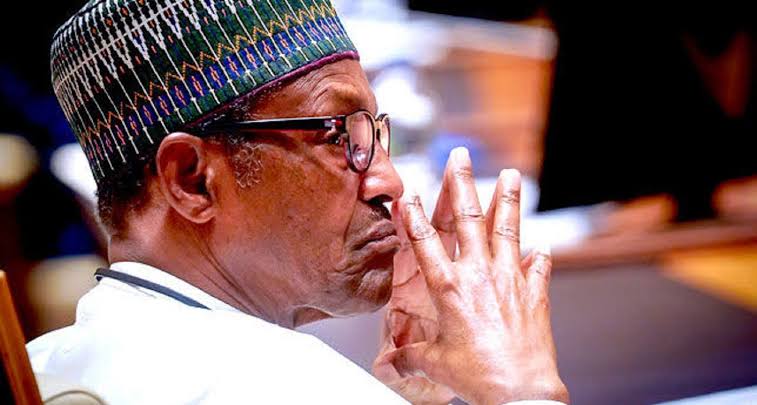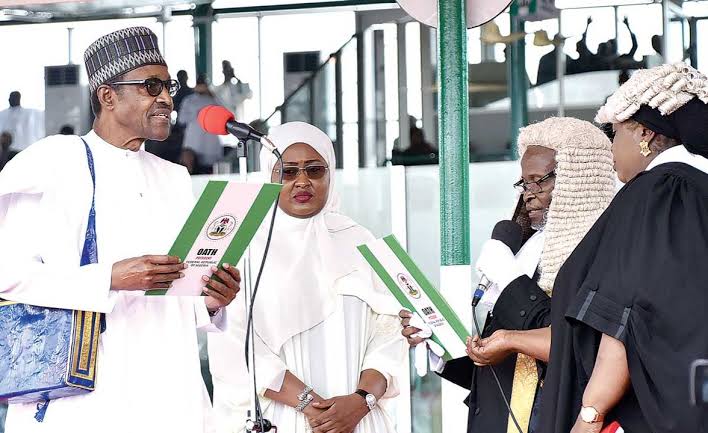In the grand theater of politics, citizens are not mere spectators; they are the authors of their nation’s narrative.
The power vested in the people lies not just in voting during elections but in the relentless scrutiny of government actions. It is an unspoken contract between the governed and those who govern—a social pact demanding vigilance and accountability.
EDITOR’S PICKS
-
Navigating Nigeria’s Economic Waters: Unraveling the Inflation Conundrum
-
Singer Cassie Accuses Ex-Boyfriend Diddy Of Rape, Sex Trafficking In Explosive Lawsuit
As the nation stands at the threshold of a new political epoch with President Bola Tinubu, precision in governance is paramount. Learning from past missteps is essential, and the nation looks to its leaders with hope and demand for clarity, consistency, and a steadfast commitment to only those programmes and policies that uplift ordinary citizens’ lives.
The Buhari Government and Its “Good Intentions”
As the Buhari administration took the reins, promises flowed like a river, offering a vision of positive change and improved living standards for Nigerians. Eight years later, hefty investments in infrastructure stand as the only significant positive amid a failing economy and several policy inconsistencies.
For most of the regime, Nigerians endured incessant inter-agency rivalry, face-offs with labour unions, frequent disregard for court verdicts, rising inflation, and insecurity crisis among others. However, the poorly implemented Naira redesign policy at the twilight of Buhari’s second coming further pushed millions into unforeseen hardship.

While staunch supporters turned a blind eye to these missteps, those questioning the rationale were promptly dubbed ‘wailing wailers.’ Ultimately, we all realized that the Buhari government enjoyed more political goodwill than it deserved.
Despite the professed “good intentions” of the Daura-born military-turned-politician, his government fell short of expectations.
Tinubu Presidency and The Imperative For Precision
As the struggle for survival continues under the Tinubu Administration, it’s imperative to delve into its policies with a discerning eye. While acknowledging the reasons behind some tough economic decisions made so far, we must address the unchecked spree of appointments.
In light of the current economic hardships millions of households face, it is insensitive, if not outrightly callous, for the government to seek citizens’ “understanding” while indulging in arbitrary increases in the cost of governance through free-for-all appointments. Nigerians must not repeat the mistake of honouring this government with underserved “benefits of doubt” or political goodwill like the previous one.

To safeguard the tenets of democracy, Nigerians must embrace the responsibility of thorough criticism. This is not an act of opposition for the sake of it but a civic duty to ensure that government policies align with their collective well-being. With its policy somersaults, the Buhari example serves as a stark reminder that constructive criticism is not an act of disloyalty but a vital mechanism for course correction.
If the country is to achieve any worthwhile progress, it is crucial to untangle ourselves from the web of partisan politics and other mundane considerations that often cloud judgment. True patriotism lies in transcending party, ethnic, and religious lines and focusing on the larger goal—national development. Nigeria needs citizens who champion the nation’s cause over narrow political affiliations.
We must draw motivation from the government’s seeming openness to public opinion and the National Assembly’s unusual eagerness to curb executive excesses. Six months into the life of this administration, tangible shifts have been witnessed through public outbursts— from the abandonment of the ₦8,000 palliative proposal to the reconsideration of appointments and the exclusion of the presidential yacht from the supplementary budget.
Conclusion
In conclusion, the need for Nigerians to closely critique President Bola Tinubu’s policies is not only a civic duty but also a necessity for the nation’s progress.
The journey from economic hardship to prosperity demands more than just resilient leadership; it requires the active participation of an informed and vigilant citizenry.
FURTHER READING
-
Presidency Reacts To Allegations Of Signing LGBTQ Agreement
-
Femi Olugbile’s ‘Pelewura’ Tells History Of Lagos Women’s Bravery, Significance
-
Appeal Court Orders Fresh Governorship Election In Zamfara
Drawing on the lessons from the past, Nigerians must actively participate in shaping the country’s destiny. For this is the only country we can truly call our own.
Akande Ismail Abiola writes for Eko Hot Blog. This media platform reserves all rights to this article.
Click To Watch Our Video Of The Week
Discover more from EkoHotBlog
Subscribe to get the latest posts to your email.
Advertise or Publish a Story on EkoHot Blog:
Kindly contact us at [email protected]. Breaking stories should be sent to the above email and substantiated with pictorial evidence.
Citizen journalists will receive a token as data incentive.
Call or Whatsapp: 0803 561 7233, 0703 414 5611

















